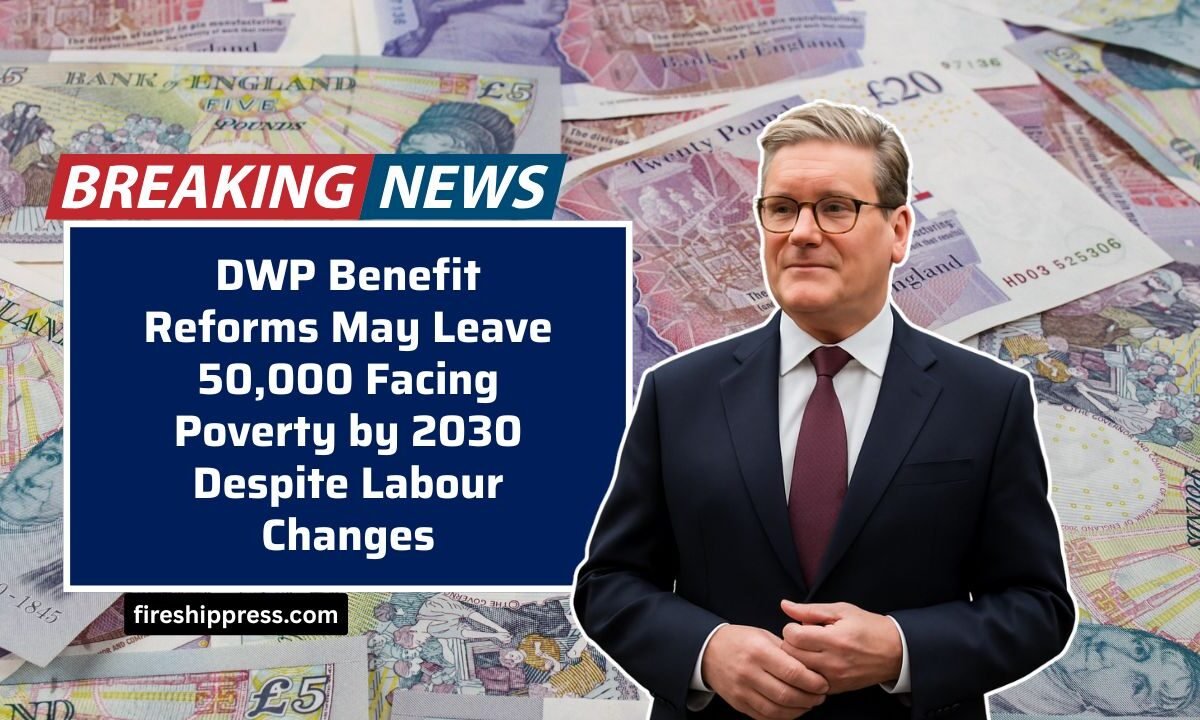The UK Government, led by Labour, reversed some Universal Credit (UC) and Personal Independence Payment (PIP) reforms amid backlash—but key cuts to the UC health premium are still set to begin in April 2026.
According to a recent report from the Work and Pensions Committee, about 50,000 people who fall ill or become disabled will still be at risk of poverty by 2030, even after the government’s concessions.
This article digs into the details: what was changed, what remains, who will be affected, and why critics warn that many could still face hardship.
What’s Changed & What Was Rolled Back
| Reform / Policy | Original Proposal | What Labour Did After U-Turn |
|---|---|---|
| PIP eligibility rules | Tightened criteria (adding stricter assessments) that would reduce the number qualifying. | Changes to eligibility abandoned; government launched a review co-produced with disabled people, expected by autumn 2026. |
| UC health premium for existing claimants (“Limited Capability for Work-Related Activity” group) | Proposed freeze of health element at current rate, no inflation increases. | Existing claimants (and those with severe or terminal conditions) will be protected; their UC health will not be frozen but increase with inflation. |
| UC health premium for new claimants | Reduced drastically: from about £423.27/month to £217.26/month for those in the Limited Capability for Work-Related Activity (LCWRA) group. | Still being implemented from April 2026. No rollback. |
| UC standard allowance | Was below inflation; benefits freeze / lagging behind rising cost of living. | The standard rate will increase by £17.39/month—from £400.14 to £417.53 for a single adult (25+)—first above-inflation rise, and incremental increases set until 2029-30. |
Who Will Be Affected & How
- Newly ill or disabled claimants (from April 2026) in the LCWRA category will see their health-related UC payments cut nearly in half.
- Existing claimants with severe or terminal conditions are protected. But people with fluctuating health or mental health conditions may struggle to meet “severe condition” criteria.
- The 50,000 figure refers to the number expected to fall into poverty by 2030 due to the health premium reduction. That includes those who become ill/disabled and their households.
Financial Effects: Numbers & Impacts
| Measure | Amount Before Change | After Change (for new claimants) | Approx. Annual Loss |
|---|---|---|---|
| UC health premium (for new LCWRA claimants) | ~ £423.27/month (~£5,079/year) | ~ £217.26/month (~£2,607/year) | ~£2,472/year less aid per claimant. |
| UC standard allowance increase | £400.14/month | £417.53/month | + £17.39/month; projected to amount to ~£725 extra/year for a single person aged 25+ by 2029-30. |
What the Government Says
- The government argues the reforms “rebalance Universal Credit rates” to reduce perverse incentives (e.g. where higher premiums for being on health-related support discourage returning to work)
- They state that £3.8 billion is committed in employment support to help disabled people and those with long-term health conditions into “good, secure work.”
- They also claim that the changes will lift 50,000 children out of poverty, among other mitigation measures (free school meals, fair repayment rate, etc.).
Criticisms & Warnings
- Committee Chair Debbie Abrahams (Work and Pensions Committee) argues that these cuts still leave newly ill or disabled people with inadequate financial support, and that poverty, health and employment impacts have not been fully assessed.
- Concern that some serious mental health or fluctuating conditions may not qualify under the “severe condition” criteria for protection.
- The Committee recommends delaying the cuts to UC health until a full independent assessment is done.
Despite Labour’s U-turn on the most controversial welfare reforms—especially around PIP eligibility changes and freezing benefits—the planned cut to the UC health premium for new claimants remains.
By April 2026, many disabled or ill people entering the UC system will see their support nearly halved.
FAQs
The UC health premium refers to extra payments under Universal Credit for those assessed as having “Limited Capability for Work-Related Activity” (LCWRA) due to illness or disability.
Most of the reductions for new claimants begin in April 2026. Existing claimants (and those with severe/terminal conditions) will be protected.
Because the cuts still significantly reduce financial support for many, especially those who become ill/disabled in the future. Many will face increased risk of poverty, and protections (e.g. what counts as “severe condition”) may be narrow.



